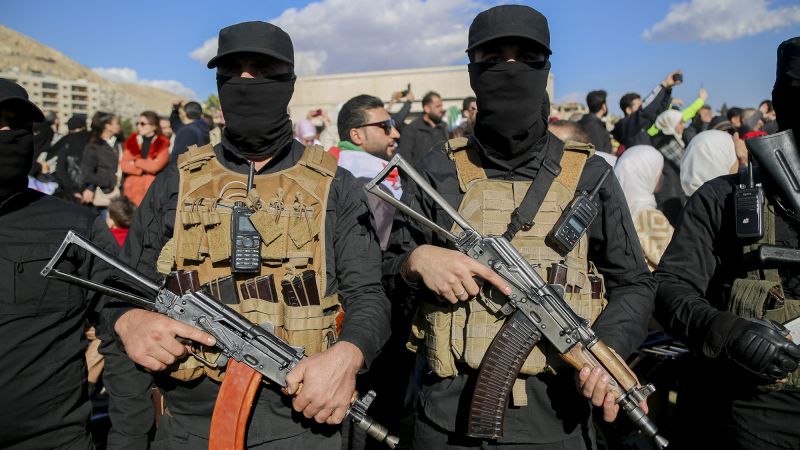
The Assad regime has fallen. Why are foreign powers still targeting Syria?
CNN
Syria’s Bashar al-Assad and his years-long regime have fallen, but the country remains a battleground for an array of actors seeking to secure interests in what may emerge to be a dangerous power vacuum.
Syria’s Bashar al-Assad and his years-long regime have fallen, but the country remains a battleground for an array of actors seeking to secure interests in what may emerge to be a dangerous power vacuum. As Hayat Tahrir al-Sham (HTS) assumes de facto leadership, Syria is still under attack by neighboring countries, and remains a scene of infighting by groups with opposing interests. Some players appear to be seeking to exploit this potential power vacuum, keen to use the post-Assad terrain to expand control or take out foes. Turkey is seeking to eliminate armed Kurdish militants, Israel has struck the remnants of the Syrian Arab Army’s capabilities and expanded its territorial control, while the United States has ramped up its strikes on ISIS and moved warships to the region. Here’s what we know about the fighting in Syria. Turkey has long had vested interests in Syria. Before Assad’s fall, President Recep Tayyip Erdogan had repeatedly pledged an imminent ground operation into northern Syria, aiming to empty the area of fighters allied to the Kurdistan Workers’ Party (PKK), a militant group that Turkey and the US deem a terrorist organization, as well as to create a safe zone for refugee return. After the rebel offensive started almost two weeks ago, fighting between the Turkey-backed Syrian National Army (SNA) and Kurdish militants in the northeast erupted.




















 Run 3 Space | Play Space Running Game
Run 3 Space | Play Space Running Game Traffic Jam 3D | Online Racing Game
Traffic Jam 3D | Online Racing Game Duck Hunt | Play Old Classic Game
Duck Hunt | Play Old Classic Game